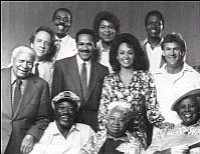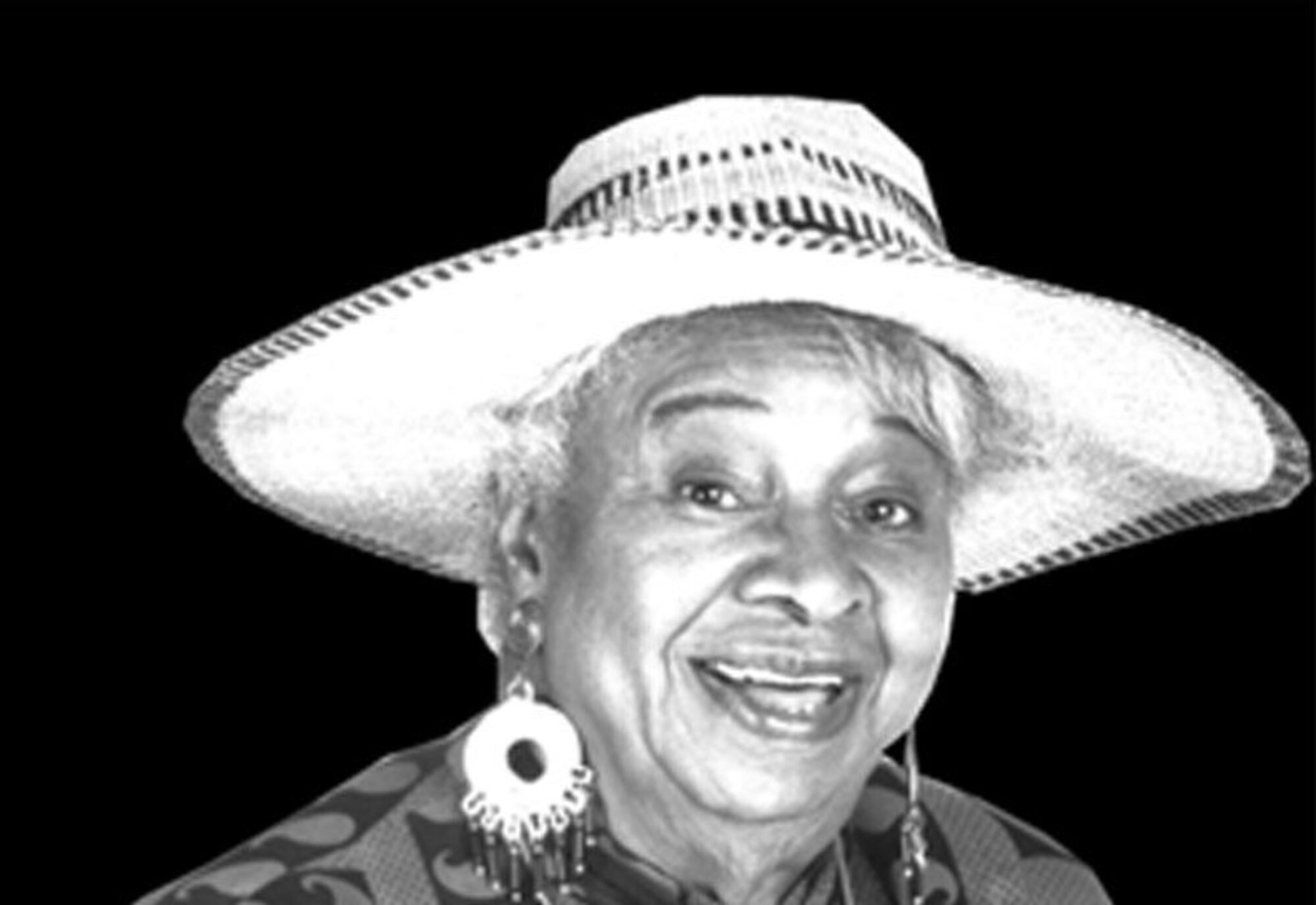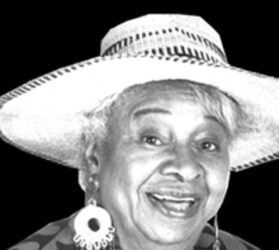
When Frances received the script from her agent, she read it and loved the part of Miss Marie. This was far different than the script she’d received for her first Hollywood film role forty years earlier. When she received the script for The Magnificent Doll …after searching the entire script several times, she was so hurt because the role of Amy, the maid, was so sparse and one-dimensional. Times certainly had changed. The character of Miss Marie had something she could work with-something more than the stereotyped characters that Hollywood films were filled with. In fact, all the characters in Frank’s Place were well-rounded and likeable, even some of the villainous ones.
At the initial audition…Frances read for Hugh Wilson. When she finished, she said to him, “This must have been written by a black person,” because “it captures our essence so well.” He smiled. It was one of the greatest compliments he’d ever received, he said, and “I want you for the role of Miss Marie.”
The first episode she liked very much, but the second, she didn’t. In fact, she decided that the script was going to be changed or she would no longer be part of the cast. That was the first big challenge. The script called for a scene in which Frank befriends a common alley cat named “Jesse Jackson.” Frances was angry. To belittle an important African American leader was an affront. First she called Wilson. When she explained her annoyance, he said, “I don’t see anything wrong with it.” “Well I do. Jesse Jackson is our hero and if you don’t mind doing that to someone we respect, why don’t you just call the cat Jimmy Carter?” Next she called Tim Reid who was in Chicago at the time. He said, “Hold everything until I get back.” The cat was renamed and Frances remained with the series. “Yet, in spite of that, we became a family…(we) all learned to work together, showing that (we) cared for each other as persons rather than just doing our job.”
Frank’s Place captured the folk experience of African Americans in New Orleans better than anything on television ever had. With plausible plots based on Black life, veteran actors, an integrated cast and production staff, it was quite revolutionary. Above all, it had quality. Some people in New York saw Frank’s Place when it opened and called to say that in all their lives they thought they’d never seen a play that portrayed blacks with such dignity and quality as that series. Roscoe Lee Brown told Frances his phone was constantly ringing with people talking about the series and saying how lucky they were to get it on.
Fan mail from across the country came pouring in praising the show, with many letters addressed to Miss Marie, including a marriage proposal, letters from whites as well as blacks. In one letter, the writer says, “You are a vital and effective force in the show…” another says,” ‘Frank’s Place’ is something you can always be proud of.”
When the show was cancelled, everyone was disappointed. Letters flooded the network executives in protest. One letter, indicative of many, noted the fact that the show was moved around so much, it couldn’t find an audience…. Some of its devoted followers gave up trying to reschedule their viewing habits to fit CBS’s capriciousness. One fan characterized CBS executives as ” not dealing in good faith or that you hoped to deliberately confuse and discourage people.” Frances was very disappointed but, in her typical fashion, she picked herself up, dusted off her Birkenstocks and moved on.

